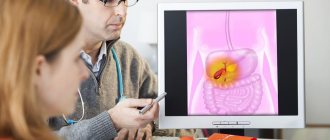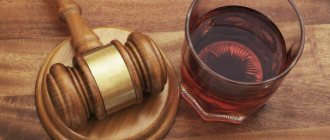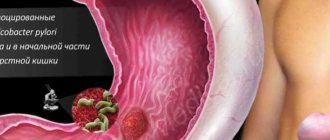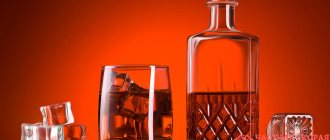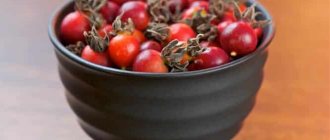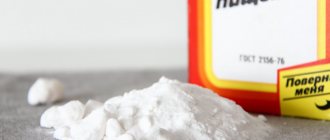Hemorrhoids affect 20% of patients with pathologies of hemorrhoids; this is a common non-infectious disease.
It occurs in males and females; the incidence of the disease is proportional to age. Due to age-related characteristics, the strength of the connections between the mucous membranes and the walls of the anus decreases. Problems with venous changes in hemorrhoids do not make a person feel constant discomfort and dwell on it. Therefore, after exacerbations with a chronic stage, people live a free life; they may have a desire to drink alcohol. Alcohol is an attribute of holidays and feasts; it is difficult to completely give it up.
A person with this disease, after an evening where a large amount of alcoholic drinks was drunk, begins to feel a burning sensation with pain between the buttocks, and realizes that he made a mistake - he forgot about the problem.
If you need emergency help, contact Alco-Center
Call the hotline +7 (495) 773-03-43 and our doctors will provide emergency care for intoxication of the body with breakdown products of alcohol and narcotic substances.
from 3,200 rub.
Withdrawal from binge drinking
Emergency body detoxification procedure
from 4,000 rub.
Coding
Urgent blocking of cravings for alcoholic beverages
from 68,000 rub.
Rehabilitation
Comprehensive rehabilitation giving 100% results
Treatment of complex forms of hemorrhoids caused by alcohol intake
In advanced forms of the disease, surgical intervention is recommended (the traditional Milligan-Morgan operation and the lesser-known Widehead method). In this case, drinking alcoholic beverages is strictly prohibited. The patient’s condition can be alleviated through sclerotherapy, infrared coagulation, latex ligation of nodes, and minimally invasive operations.
During the recovery period, you will need to adhere to a diet, eat only foods that help soften the stool, and do not overeat. It is allowed to eat veal, rabbit and poultry meat, fermented milk products, rye bread, boiled porridges, compotes, and vegetable dishes.
It is possible to exclude the occurrence of a relapse only by revising your lifestyle. You need to get rid of bad habits, pay attention to physical activity, eat only healthy and nutritious foods, ensure the correct drinking regime in order to avoid hardening of stool and excess weight gain.
Causes and symptoms
What causes the disease? This is varicose veins of the rectum, due to impaired blood circulation. This is accompanied by the appearance of hemorrhoids. They bleed, become inflamed during an exacerbation, and prolapse from the anus may occur.
Factors that provoke the occurrence of this disease are:
- Insufficiency of blood circulation and venous system, which leads to stagnation of blood in the veins of the rectum;
- Increased pressure in the peritoneum, which occurs with constipation lasting 2 days or more during attempts to defecate. Childbirth, pregnancy. Heavy physical activity, often associated with the profession;
- Hypothermia;
- Sedentary work, an inactive lifestyle, which lead to a rapid decrease in blood circulation in the pelvic organs;
- Alcoholism and abuse of excessively fatty, spicy foods.
The disease does not develop immediately, but gradually. At first, you may not even notice; the ongoing processes will not make themselves known. Harbingers of an unpleasant situation include discomfort in the anal area, a feeling of burning and itching, and difficulty during defecation. This is then accompanied by bleeding, which intensifies when going to the restroom. With constant blood loss, anemia develops, a condition that is accompanied by weakness and paleness of the skin.
The disease lasts for years, an indicator of neglect is the prolapse of hemorrhoids, which in the first and second stages are easily returned to their original position with the help of the hand. And then this happens at the slightest stress. In the chronic stage, the feeling of pain with bleeding is reduced or absent, and during the period of exacerbation the patient needs medical attention.
Afterword
There is a relationship between drinking alcohol and the risk of complications after surgery to remove hemorrhoids. It is better to limit alcohol consumption as much as possible. This should be done not only during the rehabilitation period. It is also worth remembering that excessive addiction to alcohol leads to the development of addiction , mental disorders, degradation, diseases of the cardiovascular, musculoskeletal, nervous, immune, endocrine, reproductive systems, premature aging and wear of internal organs, and death.
How does alcohol affect hemorrhoids?
Alcohol is a poison that has a detrimental effect on human organ systems. The great influence is directed on the circulatory system, with which this disease is interconnected. Alcoholic drinks dilate blood vessels and increase blood pressure. When the veins in the pelvic organs dilate, the blood stagnates and the inflammation of the nodules intensifies. New ones appear and the disease process becomes more severe.
Alcohol negatively affects the gastrointestinal tract and function. Intestinal motility decreases, that is, the processes of contraction of the intestinal walls, which are required for the release of digested food residues out. This provokes the onset of constipation, which for people suffering from hemorrhoidal inflammation means the risk of accelerating the disease process and the emergence of new complications. Also, slowing down bowel movements stimulates dehydration, which comes after holidays where alcohol was drunk.
Alcohol intoxication, a dangerous condition, a drunk person does not control his actions. Even a reasonable person who remembers the disease after drinking enough alcohol no longer takes care of himself and drinks glass after glass. An excess amount of ethyl alcohol in the body will have a negative effect on varicose veins in the rectum.
More often, fatty, smoked, spicy and salty foods are used as snacks for alcohol. The harm of this food directly affects the intestinal mucosa. Thus, hemorrhoids and alcoholic drinks are incompatible; drinking leads to increased problems. Therefore, the best option for people with this pathology is to give up alcohol forever. It will slow down the healing process and lead to complications, which are even more difficult to deal with than the ongoing disease.
Proctologists categorically prohibit drinking during periods of exacerbation. But in moments of complete calm, if necessary, you can allow yourself to drink some alcohol. But only high-quality ones that cause minimal harm to the gastrointestinal tract. Low-alcohol drinks and beer are prohibited; due to the effect on the mucous membranes, treats for such alcohol-containing liquids are in most cases accompanied by junk food.
If you cannot give up alcohol, you can drink 250 ml of wine, or 100 grams of a strong drink such as vodka or cognac. Additions of mint, pepper, St. John's wort to cocktails, and various types of dyes and preservatives will be dangerous.
Reasons why hemorrhoids and alcohol are not compatible
- Ethanol has a vasodilating effect and affects the blood supply to all cells of the body, including the intestines. After drinking alcohol, there is a slow flow of blood through the vessels, stagnation in hemorrhoids, veins of the lower extremities, and the development of a pathological process in problem areas.
- Ethyl causes fluid in the body. A person who drinks feels a frequent urge to urinate. Along with urine, useful substances are also removed from the body. This effect is especially observed when drinking beer. Feces, as a result of a lack of fluid in the body, become hard, which impedes their movement through the intestines, causes problems with emptying, and provokes an acceleration of the pathological process in the hemorrhoids.
- Hemorrhoids and alcohol compatibility is questionable . Under the influence of the enzyme alcohol dehydrogenase, produced by the liver, ethanol is converted (oxidized) into acetaldehyde. This substance is 10-30 times more toxic than alcohol itself. When there is an excess of ethyl in the blood, acetaldehyde does not have time to break down into acetic acid, accumulates in the body, poisons liver cells, which causes the development of cirrhosis, impaired blood circulation in the gastrointestinal tract, the appearance of ulcerations and damage to intestinal tissue, and the growth of hemorrhoids.
- Concurrent consumption of smoked, fatty, fried, spicy, salty and spicy snacks along with alcohol a negative effect on the gastric mucosa and intestines. Blood flows to the pelvic organs, causing stagnation in problem areas.
Preventing complications after drinking alcohol:
- Before drinking alcoholic beverages, take activated carbon and vitamins;
- Control the food you eat, replace unhealthy foods with healthy ones, for example, vegetables or fruits;
- Drink more water to reduce dehydration;
- Do not drink coffee or carbonated drinks under any circumstances.
A situation may arise: a person forgot, did not think, drank, and an aggravation occurred. There was excruciating pain, burning, and bleeding. Complications include organ cracks and the growth of polyps.
How to reduce the effects of alcohol on hemorrhoids
To weaken the effects of alcohol and protect yourself from unpleasant consequences, it is recommended to adhere to the following rules:
Before the feast, drink activated charcoal; vitamin complexes are also useful.
Watch the foods you eat. There are probably vegetables and fruits on the table. They will be healthier than fatty foods.
Remember to drink water to keep yourself hydrated.
Avoid caffeine and carbonated drinks.
What to do if hemorrhoids worsen after drinking alcohol
In the best case, call a doctor to provide qualified medical care, but you can improve your condition at home:
- First, you should lie down, relax, with less tension on the buttocks, this will improve blood circulation and reduce the pressure of internal organs on the rectum;
- Apply cold - compresses, ice suppositories;
- Fill a bath with chamomile or calendula decoction and sit there;
- If constipation occurs, in order not to injure the mucous membrane by tension when trying to empty the intestines, you should give a cleansing enema or take a gentle laxative;
- Rectal suppositories containing painkillers, antispasmodics with novocaine or anesthesin help to get rid of pain.
Recommendations to ease the course of the disease
If the pathology worsens, it is better to consult a doctor. He will prescribe competent treatment. But how can you help yourself at home? To do this, use these tips:
- Try to relax, you can lie down to relieve tension in the buttocks. Also, a lying position leads to improved blood circulation and reduced pressure on the rectum.
- Make a decoction of calendula or chamomile. Pour it into a bowl and immerse the problem area in it.
- Use cold compresses and suppositories.
- If constipation occurs, postpone defecation. First, do an enema and use laxatives.
- To reduce pain, use special rectal suppositories that contain painkillers.
There are other contraindications for hemorrhoids:
- Heavy loads. People often wonder whether it is possible to lift weights if they have hemorrhoids. Active sports and lifting heavy things lead to increased stress on the muscles of the anus. A person also runs the risk of hemorrhoidal prolapse. But a sedentary lifestyle will not be beneficial either. As a result, blood circulation is impaired, extra pounds appear, and the risk of constipation increases. Hemorrhoids from sitting on the toilet are further aggravated due to the difficulty of defecation.
- Shoes, clothes. Shoes should be comfortable to reduce the load on your feet. And underwear for hemorrhoids should be made from natural fabrics.
- Hypothermia. Prolonged exposure to cold impairs blood microcirculation. A person runs the risk of experiencing an exacerbation of hemorrhoids from hypothermia. Also, do not overheat the body to avoid bleeding.
This pathology must be treated comprehensively.
To do this, the symptoms and causes of the disease are eliminated, and it is also worth protecting yourself from complications so as not to aggravate the situation. That is why doctors strongly recommend abstaining from alcohol during treatment. Make an appointment with a specialist at the proctology center. He will give more accurate recommendations based on the stage of the disease. Make an appointment
Treatment of hemorrhoids
Before treating diseases, doctors conduct a full examination to confirm the diagnosis in order to prescribe precise therapy. Varicose veins of the rectum are diagnosed by visual examination at an appointment with a proctologist. A digital examination assesses the degree of damage.
Next, anoscopy and sigmoidoscopy are performed in functional diagnostic rooms. The first is carried out using a small device at a depth of 10-15 centimeters; it helps the doctor visually assess the condition of the intestinal mucosa. The second, in detail, over a length of up to 25 centimeters, excludes malignant neoplasms in the thickness of the sigmoid and rectum. After accurately identifying the problem and the stage of development of a particular case of varicose veins, treatment is recommended depending on the severity of the inflammatory phenomena. In mild stages, a conservative treatment method is sufficient to relieve pain and the risk of complications. Internal and external medications are prescribed.
Orally, that is, for oral use, non-steroidal anti-inflammatory drugs, such as analgin or diclofenac, are prescribed in tablets. They relieve pain and relieve inflammation. In the form of capsules and ointments, venotonic agents - venoton and troxevasin - are used to improve the condition of blood vessels. Through injection routes, hemostatic agents are used, which help speed up the blood clotting process, thereby helping to avoid bleeding; solutions of vikasol and calcium chloride are used. So, it is imperative that laxatives and enemas are prescribed in treatment on a regular basis to normalize stool. To reduce pain, Vishnevsky ointment and Levomekol are recommended. It is contraindicated to combine alcohol with treatment - in this case, attempts to recover will be useless. Alcoholic drinks reduce the effect of drugs.
In the absence of a positive effect of therapy, doctors use various techniques to influence hemorrhoids, which are carried out in hospital treatment. Infrared radiation, sclerotherapy, ligation of nodes with latex rings, cryotherapy. The procedures are carried out when there is no exacerbation of the disease. These measures can completely rid the patient of hemorrhoids; after manipulation, they die, are rejected, and wounds form at their locations, which soon heal.
At the fourth, most severe stage, a decision is made on surgical treatment. During an operation called hemorrhoidectomy, the nodes are excised and the edges of the wound are sutured. In most cases, the procedure takes place without complications, but it is followed by minor temporary restrictions from physical activity and hot baths.
Alcohol after surgery is also strictly contraindicated - antibiotics prescribed by a doctor after surgery to avoid infection are incompatible with ethyl alcohol. Ignoring this instruction can lead to dangerous consequences. The best thing is not treatment, but prevention of the disease. To do this, you need to follow the rules of prevention.
Alcohol after surgical removal of hemorrhoids
In some cases, an operation is prescribed during which hemorrhoids are removed. Often after it, doctors prescribe antibiotics that are not compatible with alcohol. About 2 weeks should pass after taking the medication, after which you can drink alcohol.
Alcohol should be avoided if the patient suffers from constipation or diarrhea, which often happens after surgery. You need to wait for your stool to normalize. In most cases, you need to abstain from alcohol for 1.5-2 months for problems with bowel movements to disappear. It's better not to make the situation worse.
Prevention of hemorrhoids
These instructions should be used by people of different ages and genders. Regardless of whether healthy or not, advice should be followed during drug treatment, during periods of transition to the chronic stage. Lifestyle changes are a common cause of knots, such as a sedentary lifestyle. It should be avoided. Naturally, the majority of work and study sessions are spent sitting in one place, but this does not mean that you can no longer move. Walking, replacing public transport with walking is a good habit. During sedentary work, take breaks of 5-10 minutes as often as possible and do a warm-up. Spend your free time not at home, sitting at the computer, but go to the pool, do gymnastics or fitness. Replace soft chairs with furniture made of hard material.
Nutrition - violation of the rules of diet leads to stool disorders and difficulties during bowel movements. Eat in small portions, 5-6 times a day, drink more water. Eliminate fatty, salty, spicy and smoked foods from your diet. Avoid alcohol.
Train your body to empty its bowels in the morning, after breakfast. Go to the toilet at the first urge, without postponing the process until later. And, conversely, if you have difficulties with stool ejection, you should not sit in the toilet for hours and once again force the pelvic organs to strain.
Follow personal hygiene rules carefully. Take sitz baths, and after going to the toilet, wash with water, not toilet paper. Avoid strenuous physical work and do exercises to restore blood circulation.
Most importantly, don’t be ashamed to see a doctor. At the first signs, come for an appointment at the proctologist’s office as soon as possible. Compliance with the rules of prevention and complete abstinence from drinking alcoholic beverages will relieve you from the painful consequences of hemorrhoids.
Author of the article: Yakovlev Evgeniy Anatolyevich
Narcologist, Candidate of Medical Sciences.
Authorized Products
Prevention of exacerbation or relief of the general condition is achieved by dishes that improve the functioning of the gastrointestinal tract. The list of permitted products is presented:
- Vegetables – a mild laxative effect has been recorded with the consumption of cucumbers, beets, zucchini, carrots, pumpkin and cabbage. Starchy crops are practically excluded from the diet due to the risk of constipation. These include potatoes, radishes and radishes. You can eat fresh, baked or boiled vegetables.
- Fermented milk products - kefir, yogurt, fermented baked milk, and yoghurt are included in the diet. They are suppliers of disease microflora and are responsible for accelerating the passage of food and accelerating the healing of cracks in the anus.
- Cereals take the load off the digestive tract. Preference is given to oatmeal, buckwheat, pearl barley, barley, and wheat porridge. Semolina and rice are excluded due to the fixing effect.
- Fruits - the daily menu is enriched with oranges, apples, pears, plums, strawberries and peaches. Dried apricots, figs, prunes and raisins can also be included in the diet.
- Greens – enriched with ascorbic acid and rutin, it tones the intestinal veins and suppresses inflammatory processes in it. With it, iron enters the body, which is necessary for the production of red blood cells during bleeding.
- Oils - herbal compositions have an enveloping effect, accelerate wound healing and help defecation pass painlessly. Preference is given to products from pumpkin, sea buckthorn, olives, cedar and flax. If the pathology is combined with gallstones, then their use is undesirable.
Improving the functionality of the gastrointestinal tract is achieved by eating whole grain bread and other products. Baked goods and baked goods are prohibited. It is allowed to include linden, chamomile, and sage tea in the diet.
Doctors' opinions on alcohol
If previously the belief about the benefits of a glass of wine and a glass of vodka was popular among doctors, now everyone is actively disowning these beliefs. Recent scientific studies have proven 100% negative effects of alcohol on the body. Today, the safest and healthiest solution is to give up alcoholic beverages or reduce them in your diet to a minimum.
There is not a single medical recommendation on alcohol consumption in the world. No disease can be cured or prevented by this dangerous substance. The heart and blood vessels should be treated with medications and physical activity, and flu and coronavirus should be prevented by vaccination.
Alcoholism is a serious disease that destroys a person both physically and socially. It always starts with “safe” doses—a glass of wine on Friday night, a can of beer after work—and ends with dire consequences. Control yourself and try to limit your drinking to holidays and special events.
Take care of your health!
About drinking beer for hemorrhoids
Is it possible to drink alcohol if you have hemorrhoids, if we are talking about beer? Many patients believe that beer is not prohibited. They motivate their point of view by the fact that it refers to low-alcohol drinks and therefore cannot cause significant harm to their body.
Beer, in addition to alcohol, contains substances that irritate the intestines, so it is prohibited for hemorrhoids.
The alcohol content of beer is indeed relatively low. But it also contains other substances, in particular, hops, which irritate the rectal mucosa and increase blood flow to the cavernous sinuses. The action of such substances potentiates the damaging effect of alcohol. As a result, drinking even a small amount of beer often results in a severe exacerbation of the disease. Therefore, proctologists strongly recommend that patients with hemorrhoids resolutely refuse it.
